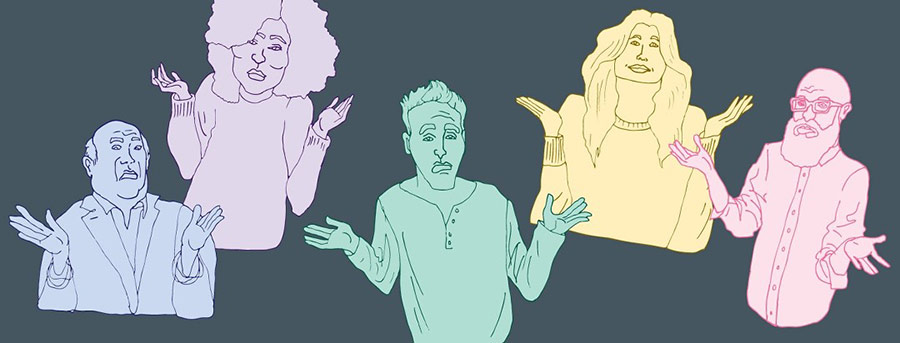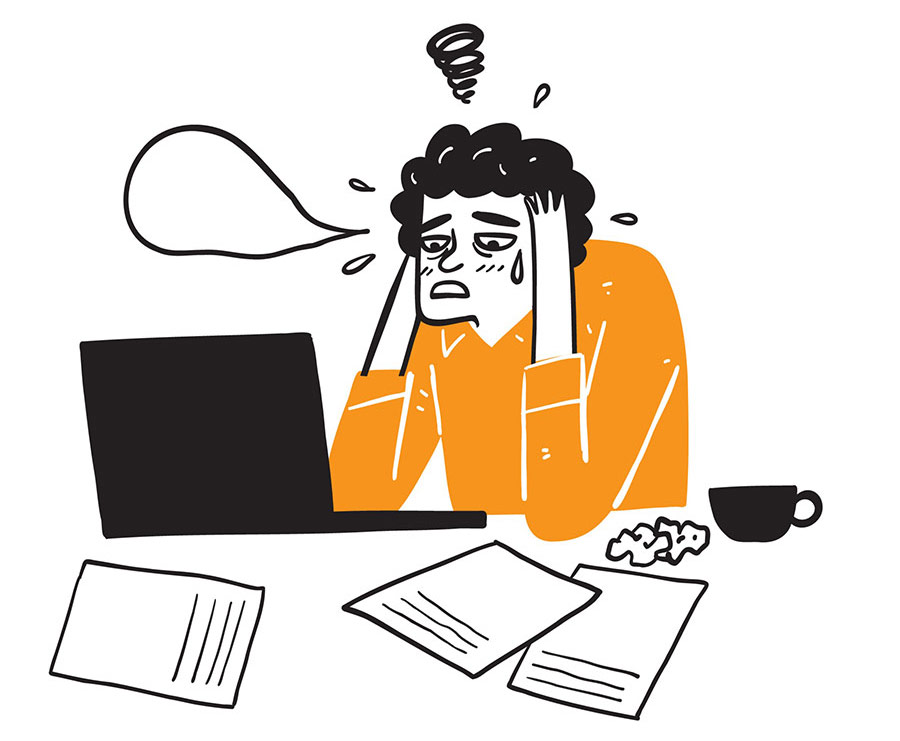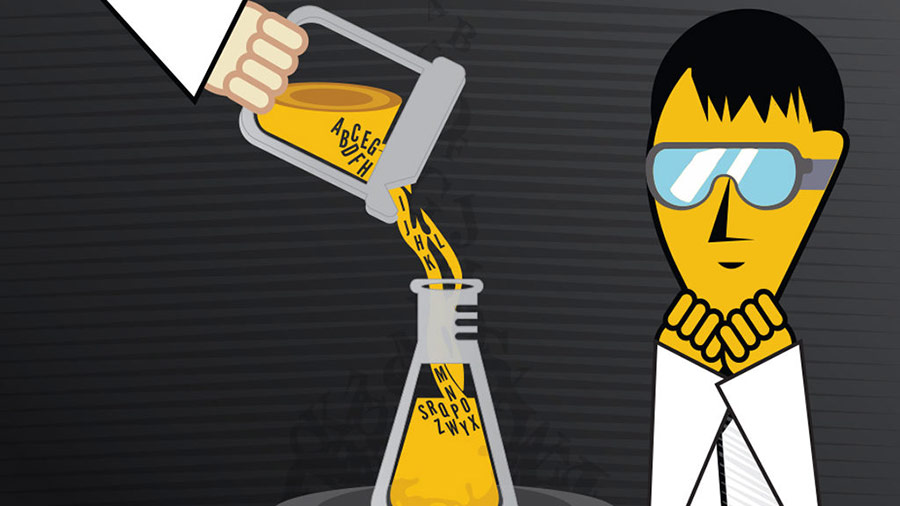Aashi sat down to finish an important chore, and suddenly she discovered that she had to feed her toddler, after loading the dishwasher, and after some time she was engrossed in finding a smart way to take notes and keep up with the upcoming events. Or all of a sudden she realized that she should answer the emails, or maybe organize the bookshelf before getting on with the important chore that was gaping at her. “It is only 11 a.m.,” she thought to herself, I have enough time to start and finish the work right on time. The next thing she knew, it was the end of the day and that important chore remained untouched since the last time she thought of getting on it!
Aashi might have done the same thing many times, and asked one question over and over again, “Why do I keep repeating it even though I know it’s bad for me?”
When people delay important tasks or keep postponing them is known as procrastination. Sometimes it might be due to the feeling that the task is difficult or the deadline is way ahead in the future. Managers, emerging leaders, and every individual should be aware of these patterns because it clearly reveals that people’s propensity to put off doing less-important but urgent tasks while finishing lengthy ones results from a core psychological preference. We act as though doing urgent chores is appealing in and of itself, regardless of the outcomes.
A professor of motivational psychology at the University of Calgary and the author of “The Procrastination Equation: How to Stop Putting Things Off and Start Getting Stuff Done,” Dr. Piers Steel says that it’s self-harm. The fact that procrastination makes us feel so awful in large part is due to our self-awareness. When we put off completing a task, we are conscious of the fact that doing so is probably not a good idea. We still do it, though.
Why Do People Procrastinate?

So, do we procrastinate because the task is difficult, the deadline lies far in the future, or we are in a bad mood? Let’s find out.
A professor of psychology at the University of Sheffield, Dr. Fuschia Sirois says, “We call procrastination essentially irrational as it doesn’t make sense to put efforts into something that may have negative consequences.” She continues by saying that people go on with this irrational cycle of chronic procrastination because they find it challenging to manage negative moods around a task.
Yes, mood plays a big role in falling into the girth of procrastination.
1. Confusion

“I don’t know what to do.” When something like this happens, it can feel overwhelming for most individuals. It is when we start to rationalize everything. Self-acclaimed perfectionists witness procrastination a lot. “Do I want to finish the process or result?” However, most of the time we find ourselves stuck in the situation or maybe it is too scary to even start.
What to do?
- Get started anyway.
- It is best to take one step at a time, and figure out how things unfold along the way.
- It is okay to make mistakes, however, we learn a lesson from them.
- In no time we will realize that the scary part was to get started, the things will fall into place accordingly.
2. Neuroticism

Is it fair to think it might be neurotic? “I just cannot do it.” Neuroticism is inclining towards psychological stress and negative emotions. When things get scary, chaotic, or it feels like we would not be able to pull it through, we tend to fall into the habit and make a narrative of life. In the process, we only listen to the voice telling us to procrastinate because knowingly-unknowingly we believe it. The work will pile on, and we wouldn’t want to do anything. Most of us experience it, especially when it is time to start something new, and prefer to stay stuck in the situation.
What to do?
- It is the perfect time to start thinking of the times when we excelled at something we thought could be challenging at first.
- It is best to use that memory as an anchor to move forward.
- Think creatively and visualize completing the task at hand.
3. Fixed Mindset

“I’m afraid I will fail or I will look stupid. ”When someone has a fixed mindset, they take their personality features for granted. People with fixed mindsets think that their level of intelligence and talent is inherent and therefore there is no scope for improvement.
What to do?
A growth mindset is a cure for this. When we adopt a growth mindset, we see our skills and personality as dynamic and ever-evolving. It indicates that even though we initially failed at something, we still can succeed if we try again or use different strategies. As a result, we’ll behave differently and experience different results. The next time we procrastinate, we should promise to enjoy the journey without focusing on the outcome.
4. Lethargy

“I am too tired. I don’t have any energy at all.” Well, in my opinion. It’s a big lie. It’s a constant lie we tell use to comfort ourselves during procrastination. It is a saying that “If you quit once, it has become a habit.” The moment we feel like quitting, just say, “Let me do it one more time.”
What to do?
For example, You are doing 20 pushups, when you reach the count of 15 or 16, you say to yourself, “Well, I can’t do it.” at that moment, push and tell yourself – one more time. Doing it one more time would prove to you and your mind that you can do it. You will be energized and feel enthusiastic to pull it through. This is how we can make things happen.
5. Apathy

“I have become so indifferent that I barely care about anything.” Well, the reality is, no matter how much we deny that we don’t care, deep down a caring heart beats inside all of us. Apathy seems to stem from our perspective, when there is a fear of failure then it becomes even more difficult to start in the first place. The only reason these voices echo in our heads is that we feel there is nothing we could do about how we feel at the moment.
What to do?
Understand what you desire before taking action to resolve your circumstance. For instance, you don’t want a cluttered room, but how do you want your room to look? Think of your life the same way and apply it ritually. Instead of trying to escape something, self-discipline might help you keep going. Include what you need in your request for assistance if you want it. Who do you aspire to become? What goals do you have?
6. Regret

“I am too old to start something new, and I think it’s too late for me.” Life is right here and right now, as true as it might be to plant seed 20 years ago to enjoy its fruits, it is never late to plant a seed today. It is natural to hear this voice constantly when we miss an opportunity and when it appears again in our life.
What to do?
The moment to start doing something is now! We can start here right now without letting “regret” take over our consciousness. We still have so much time to do anything new, instead of wishing to accomplish something, we should get head over heels to do it right now. You still have so much time. What would you rather do? Instead of wishing, just do it.
7. Choice of Words

The way we feel is the way we act. If we keep telling ourselves that the task is impossible to do, I am too afraid to start it in the first place, I don’t know if I will ever succeed, or how am I supposed to keep calm when a deadline is hanging over my head? Choosing these words is the kind of narrative we are making for ourselves – impossible, hard to achieve, and probably every definition of negative.
What to do?
Ask yourself, are these really your words? According to neuroscience, “Each and every word we use is a unit of energy, where and how we utilize that energy is absolutely up to us.” There is a term called confirmation bias and the moment we start thinking like that, there is a fair chance of ending up acting in the same way. Instead of using the phrase, I cannot do it, change it to – I cannot do it, yet. You will realize that with time you will be able to overcome it.
There are numerous causes of procrastination, and an individual may procrastinate for one or more reasons. Understanding the causes of procrastination can help us identify our own procrastination patterns and, ultimately, find solutions to our procrastination issues. Procrastination is highly existential, though, because it calls into question our liberty as individuals and the difference between how we wish to spend our time and how we really do. However, it also serves as a reminder of how similar we all are; most of us just want to be satisfied with the decisions we make at the end of the day.
Before an important chore became the next procrastination albatross, Aashi realized that she was procrastinating and was able to overcome it.
https://soulsalt.com/what-causes-procrastination/
https://www.calmclinic.com/storage/images/242/qosioc/main/w1600.png
https://assets.rbl.ms/17466220/980x.jpg
https://hrinspire.co.uk/wp-content/uploads/2020/07/lockdown-lethargy.jpg
https://parkinsonsdisease.net/wp-content/uploads/2018/11/9065-custom-1080×412.jpg
https://research.uh.edu/the-big-idea/wp-content/uploads/2019/08/science-communication-1024×576.jpg
Written By: Jimmy Jain
Edited By: Afreen Fatima
Society of Design Thinking Professionals









